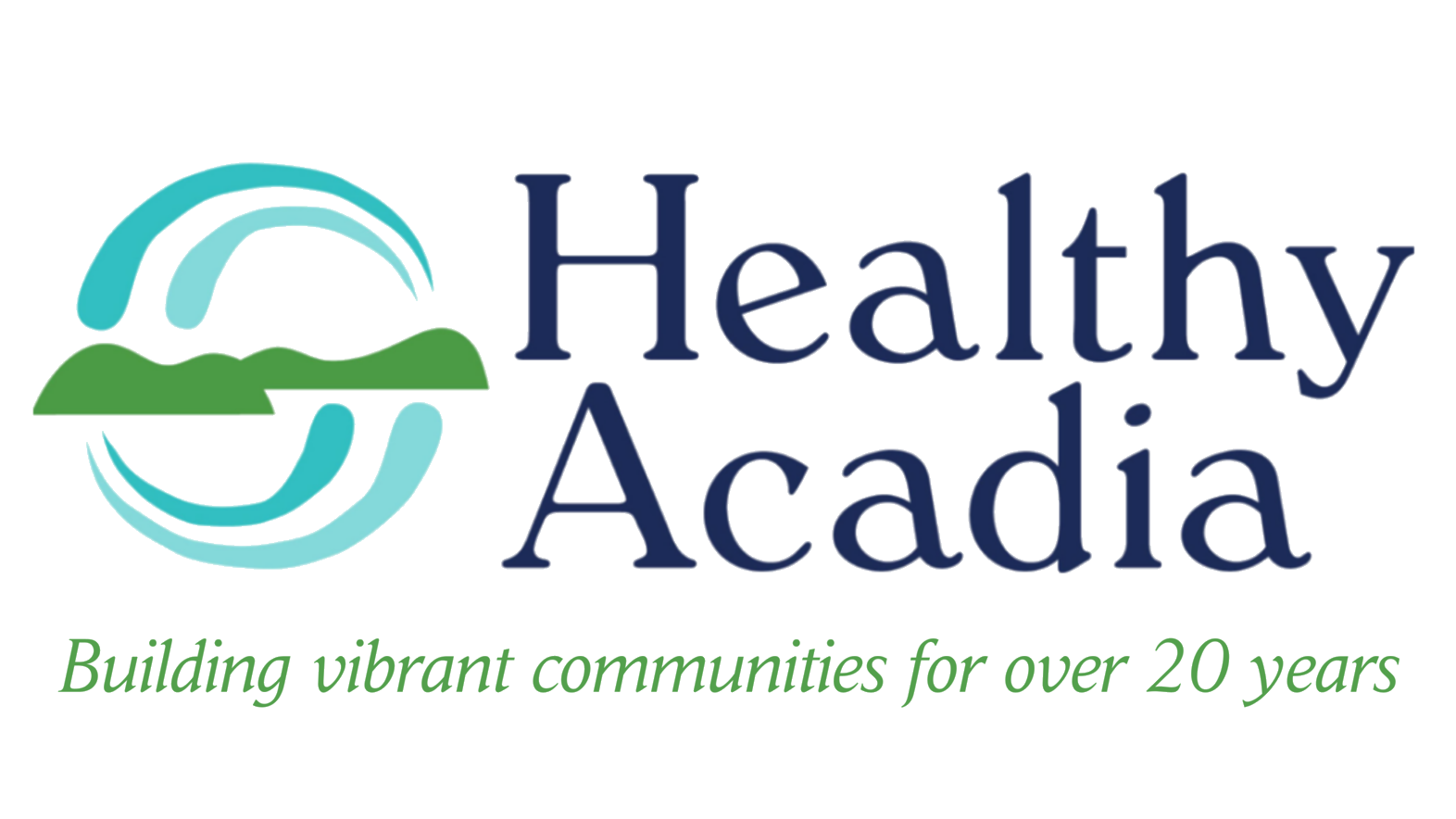Civic Engagement and Public Health
April 1-7 is National Public Health Week 2024.
Join Healthy Acadia, American Public Health Association (APHA), and community-serving organizations nationwide in celebrating the many public and private spheres working together to make individuals, families, communities, and our nation healthier, stronger, and more resilient. This year’s Public Health Week theme is, “Protecting, Connecting, and Thriving: We Are All Public Health.”
Healthy Acadia is committed to collaboration and partnership across all community sectors and throughout our service area, knowing that we do our best work by building trust, listening to one another, working together, and sharing resources, knowledge, and skills. We believe that all people must have access to resources and conditions that support their best health and well-being. We are committed to continuous learning, creating opportunities, and fostering environments that enable all people to thrive. We are dedicated to addressing health disparities and inequities both within our organization and across the communities we serve.
We firmly believe that we are all contributors to public health, and we're eager to hear what this means to you. What does your Healthy Acadia look like? Share your thoughts with us!
What is your Healthy Acadia?
Every day during Public Health Week, we’re sharing an inspiring story that shines a light on a community health program or initiative aligning with the American Public Health Association's theme of the day. Today’s theme is Civic Engagement.
Strengthening Communities: The Power of Civic Engagement
In today's society, the term "civic engagement" resonates more than ever. It embodies the collective actions we take to identify and address societal issues, thereby shaping the opportunities for healthier communities. At its core, civic engagement empowers individuals and communities to participate actively in decision-making processes, from the local level to the national stage.
My Healthy Acadia is supportive of my voice.
Healthy Acadia wholeheartedly advocates for and promotes civic engagement, acknowledging the pivotal role of voting in public health. In 2020, we took a decisive step by designating Election Day as an official staff holiday, aiming to lower barriers to voting for our employees.
We promote and endorse our team members' engagement in community service: all full-Time employees are entitled to one day per calendar year to engage in volunteer work - at no cost to their benefit time - for a charity, church, or non-profit organization of their choosing.
Our Policy and Advocacy Committee, comprised of board members and administrative staff, carefully evaluates health-related matters under legislative review at the state level. The committee aims to identify issues of importance to public health in our region where our support should be expressed with an intentional focus on community health and health equity outcomes in our approach to identifying and acting on policy issues.
Communities and neighborhoods play a pivotal role in fostering civic engagement. Organizing Pledge to Vote campaigns and initiatives not only encourages voter participation but also reinforces the importance of civic responsibility. These grassroots efforts amplify community voices and mobilize collective action towards shared goals.
At the city and state levels, policymakers play a crucial role in advancing inclusive voting policies and dismantling barriers to the ballot box. By prioritizing policies that enhance voter accessibility and representation, states can cultivate healthier and more equitable communities. Evidence suggests that areas with improved access to voting also experience enhanced economic prosperity, underscoring the interconnectedness of civic engagement and societal well-being.
Civic engagement is not merely a civic duty but a powerful catalyst for positive change. By actively participating in our democratic processes, we uphold the principles of equity, justice, and community empowerment. Together, let us harness the collective power of civic engagement to build healthier, more resilient communities for generations to come.
Read APHA’s post highlighting the importance of civic engagement, in English or en Español.
Why is Civic Engagement Important for Our Well-Being?
“A recent analysis of civic engagement and state health outcomes from 1996 to 2020 showed that in states where people are more civically engaged and vote more, public health outcomes are better.”
Civic engagement encompasses a spectrum of activities, from voting in elections to participating in town hall meetings and volunteering for community initiatives. These actions enable us to exercise our rights and responsibilities as citizens, influencing policies that impact various facets of our lives, including public health.
According to APHA, “A recent analysis of civic engagement and state health outcomes from 1996 to 2020 showed that in states where people are more civically engaged and vote more, public health outcomes are better.” States with fewer barriers to voting and more accessible voting mechanisms tend to fare better in terms of public health. Conversely, states with restrictive voting policies not only impede democratic principles but also exacerbate health disparities, perpetuating inequities in access to healthcare and resources.
As individuals, exercising our right to vote is one of the most potent tools for effecting change. By casting our ballots and encouraging others to do the same, we contribute to shaping local policies and fostering community cohesion. Advocating for voter-friendly workplaces and organizations can enhance accessibility to the electoral process, ensuring that everyone has the opportunity to participate in shaping their future.
Why is Civic Engagement Important to You?
Let’s Build Healthier Communities Together!
We invite you to come together with us to build public health for everyone. You can make a difference by volunteering your time, making an in-kind or financial gift today, reaching out to talk over ideas, or considering a planned gift.
Donate online. Make a one-time gift, join our Sunrise Monthly Giving Circle, and/or donate in honor of a loved one.
Mail a check to Healthy Acadia, P.O. Box 1710, Ellsworth, ME 04605.
There are so many ways for you to get involved!
For more ways to give, click here or contact Shoshona Smith at Development@HealthyAcadia.org or (207) 667-7171 Ext. 210.

